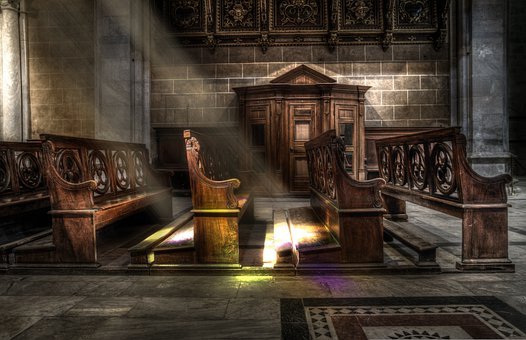What relationship do the Japanese have with religion? According to official statistics, a bit confused, superficial and… instrumental. Against a population of about 120 million people, 82 million claim to be Shinto (the indigenous animist religion), 50 million Buddhists, about a million Christians and 4 million followers of “other” religions. The numbers don’t add up. Especially if we add to them those of another recent survey, published by the Nikkei, according to which 68% of the interviewees declare that they do not follow any religious movement, while the remaining 30% declare to be Buddhist (12%), Christian (2 , 2%), or Shinto (just 1.5%).
This does not prevent temples and shrines from being literally “invaded” on particular occasions (New Year’s Eve, O-Bon, Shichi-Go-San, a party dedicated to children) and from collecting money in spades for weddings, funerals and all various forms of “blessing” (inauguration of houses, commercial activities, travel) that they receive from time to time.
In Japan, the opinion is very widespread that one is born Shinto, one marries as a Christian and one dies Buddhist: all because, for each of these occasions, the Japanese would choose the most beautiful and attractive rite, but also the most … convenient. . A people of atheists, opportunists and superstitious people? The only people in the world that instead of being exploited by religion, has in fact subjected it to its own needs? The late Father Giuseppe Pittau, a Jesuit and for many years rector of the prestigious Sophia University in Tokyo, was convinced of this: “In the Japanese there is a high sense of spirituality, but also a lot of distrust towards established religions, those that require them to follow a certain path, to believe in certain principles, and which foresee condemnations and rewards ».
I remember, during one of our many chats, that with great wisdom and honesty of thought one day he explained to me why, despite the excellent premises (Christianity, when it arrived in Japan with the first Franciscan, Dominican and Jesuit missionaries, in the sixteenth century, an immediate and widespread success, before being severely repressed by the Tokugawa shogun, a century later) Christianity, even today that freedom of worship is constitutionally guaranteed, has never “broken through” in Japan: “The Japanese are a substantially secular people , they love traditions, liturgies, occasions to celebrate: but they can’t stand dogmas. It is impossible for us Christians to impose concepts such as original sin, Mary’s virginity, the Holy Trinity. And above all the idea of hell, eternal damnation ».
The fact remains – and the figure became the subject of public debate after the assassination of former Prime Minister Shinzo Abe, last July, by a young man who believed him to be a supporter of a religious sect (the Church for Unification founded by Korean Reverend Moon Sun Myung, also present in Italy), in turn responsible for the indebtedness of the mother – that Japan is a real paradise for religions or presumed to be so. According to the Cultural Affairs Agency, there are currently over 180,000 officially registered “religious associations”. Some declare millions of adherents, others a few hundred, some are “family businesses”: few people, more or less linked by family ties, who invent a cult and thanks to a particularly permissive law (approved immediately after the war, to guarantee absolute freedom of worship and avoid the risk of returning to the times of Shinto “state religion”) can freely carry out – and without particular controls – not only proselytizing and “evangelization” activities, but also – and above all – fundraising.
Tax free. Funds that are often used to finance, directly or indirectly, political activity. Hiroshi Yamauchi, a lawyer, founded the association “victims of spiritual sales” years ago: he defends the thousands of people who every year are convinced / forced to buy all sorts of objects, or make payments.
It is the most debated topic in Japan these days, especially since politicians had to declare any “contributions” obtained by the Unified Church (but not by others …) at the request of the government. Although only two parliamentarians, one from the ruling party, the other from the opposition have officially admitted to having received a – albeit ridiculous – funding (around 300 euros) – there are 176 deputies who declare that they have had some form of link with the sect. The most common is to procure votes. In Italy we would call it a “swap vote”, but in Japan this figure of electoral crime – despite a particularly severe law – is not envisaged.
So the adherents to a sect, from the Unification Church to the Soka Gakkai, the Buddhist secular association that for years has guaranteed millions of votes to its political arm, the Komei party (in government) can freely provide their “services” (the most common of which is the provision of “voluntary” – but often actually paid – staff on the occasion of election campaigns) without formally violating the law. And if it is true what the local media report, that the Unified Church alone has raided over 3 billion dollars (of which about half is sent to the headquarters in South Korea) we can well imagine the importance of their “Help” on the occasion of the elections. Inoue Yoshiyuki, former private secretary of the current Prime Minister Kishida, knows something about it: from 80,000 preferences he has gone to 165,000, since he “frequents” the powerful sect. With the “blessing” of Kishida himself. «The principle of separation between state and religion – declared the premier last August 15 – does not prohibit religious organizations from carrying out political activities. Rather, it is a limit imposed on the state, so that it does not interfere in any way by limiting freedom of worship ”. And of a bribe, I would add.
© REPRODUCTION RESERVED

